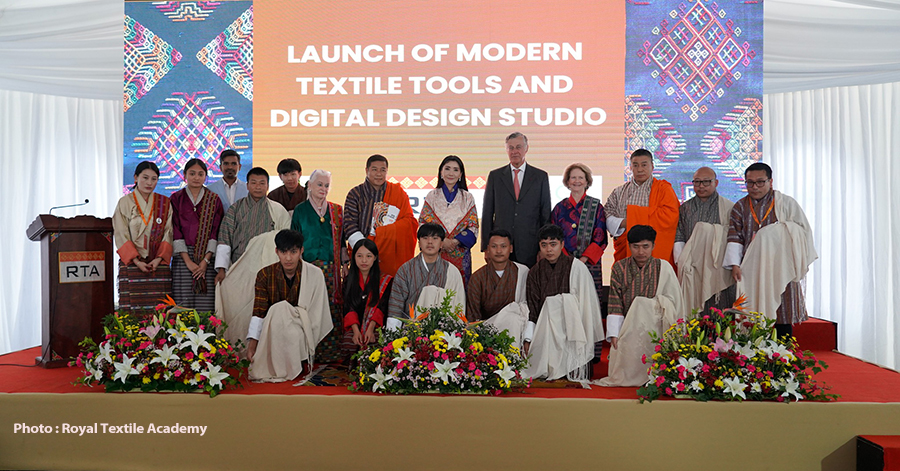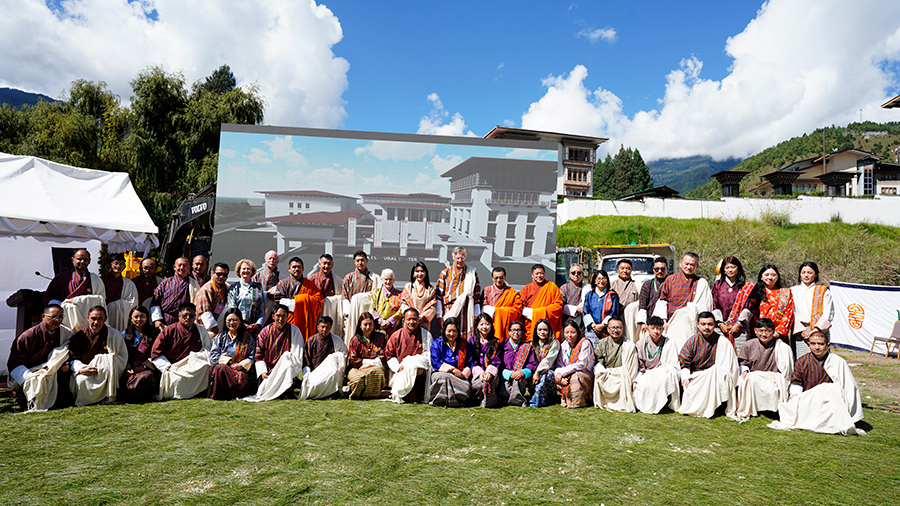 If successful, new weaving tools could help revive the appeal of traditional weaving. The craft is losing popularity among youth due to the strength and time it requires. To address this, students from Jigme Namgyel Engineering College and Gyalpozhing College of Information Technology, in collaboration with the Royal Textile Academy, have developed prototypes of a modern weaving tool and a digital design platform to ease the weaving process and inspire creativity. Her Majesty Queen Mother Sangay Choden Wangchuck, the Royal Patron of the Royal Textile Academy, graced the event yesterday.
If successful, new weaving tools could help revive the appeal of traditional weaving. The craft is losing popularity among youth due to the strength and time it requires. To address this, students from Jigme Namgyel Engineering College and Gyalpozhing College of Information Technology, in collaboration with the Royal Textile Academy, have developed prototypes of a modern weaving tool and a digital design platform to ease the weaving process and inspire creativity. Her Majesty Queen Mother Sangay Choden Wangchuck, the Royal Patron of the Royal Textile Academy, graced the event yesterday.
Putting the classroom knowledge and lessons into practice, recent graduates of Jigme Namgyel Engineering College with a background in Mechanical Engineering have come up with prototypes of modern textile tools.
This includes mechanised yarn processing equipment such as spindles and carding machines, designed to save time, ensure consistent yarn quality, and improve productivity. It also features a mechanised back strap loom.
“Youths show little interest in weaving because traditional back-strap looms often cause back pain. To address this and revive interest in our rich culture, we have developed an improved back strap loom that allows body movement and adjustments to reduce discomfort,” said Laxmi Chimariya, Graduate, Jigme Namgyel Engineering College, Samdrup Jongkhar.
Likewise, students from the Gyalpozhing College of Information Technology have created a digital design studio. The platform allows weavers to design textile patterns digitally, providing a visual preview of the patterns before weaving even begins, making the process faster and more accurate.
“It is a concern for the Royal Textile Academy and all of us that young people are losing interest in textile work. With this design studio, they can explore their creativity. Even if they do not weave, they can still contribute by creating designs on this platform,” said Anup Gurung, a Student at Gyalpozhing College of Information Technology, Thimphu.
Officials from RTA said these initiatives will make weaving easier for artisans while keeping the country’s textile heritage alive.
They hope that by modernising the tools and techniques, weaving will attract more young people, ensuring the tradition continues.
“From now on, we plan to refine these prototypes in detail to make them fully usable. After that, we will explore mass production, collaborate with companies, and secure patent rights so they can be recognised as a purely Bhutanese product,” said Ugyen Tenzin, Director, Royal Textile Academy.
 Today, Her Majesty Queen Mother Sangay Choden Wangchuck graced the ground-breaking ceremony for the construction of an auditorium and a conference centre at RTA.
Today, Her Majesty Queen Mother Sangay Choden Wangchuck graced the ground-breaking ceremony for the construction of an auditorium and a conference centre at RTA.
Sangay Chozom
Edited by Sonam Pem








